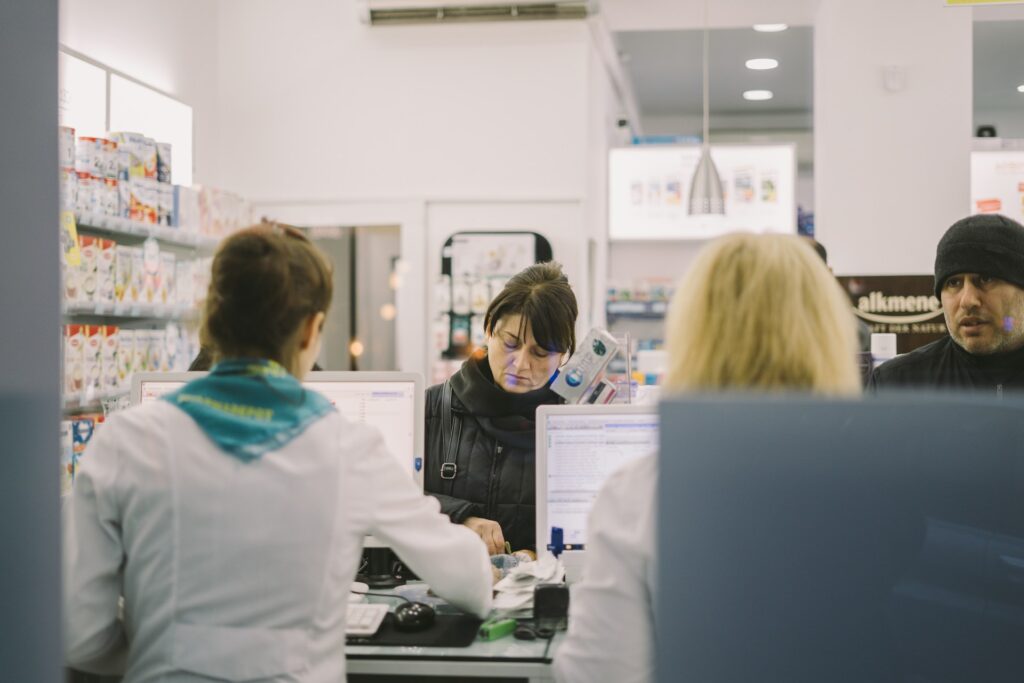Key Takeaways:
- Access to a pharmacy beyond standard business hours provides critical support for ongoing health management.
- Having medications available 24/7 helps maintain treatment consistency, particularly for chronic conditions or acute medical needs.
- Technological advances such as telepharmacy facilitate the seamless operation of pharmacies day and night.
- The availability of round-the-clock pharmacy services can help alleviate stress and uncertainty for patients, contributing to better mental health.
The Rising Demand for Around-the-Clock Pharmacy Services
Medical care is not a service that can be confined to a timetable. Illnesses can strike unpredictably, and the need for medication often arises outside the typical nine-to-five window. Recognizing this, there has been a rise in the demand for services of a 24/7 pharmacy Mason OH, and elsewhere. Individuals who have urgent medical needs, those with chronic health issues requiring sustained medication, or even parents of ill children in the middle of the night all benefit from pharmacies that operate round-the-clock. The concept of a pharmacy that never shuts its doors provides reassurance and a safety net to patients who require medication management at all times, making adherence to treatment regimens less stressful and more successful.
Enhancing Healthcare with 24/7 Pharmacy Access
Timely access to prescription medications is not just a matter of convenience; it is vital to the efficacy of many treatment plans. Medication adherence is a critical issue in health management, affecting outcomes for patients with chronic illnesses like diabetes, hypertension, and mental health disorders. A 24/7 pharmacy ensures patients do not miss doses because they can’t access their prescriptions after regular business hours. This consistent accessibility substantially enhances the overall healthcare delivery system, contributing to better long-term health for patients and reducing relapses and hospital readmissions related to nonadherence.
Patient Empowerment Through Continuous Medication Availability
Availability of medications at any time empowers patients, giving them control over their health management. This empowerment is significant in urgent situations where treatment initiation or medication changes should be completed on time. Better results occur when patients are actively involved in their treatment regimens and know they can get their prescriptions without being restricted by pharmacy hours. Additionally, the pressure and stress often accompanying the critical medication waiting period can be alleviated, contributing to better mental health and patient satisfaction.
Technology’s Role in Providing Uninterrupted Pharmacy Services
Technology integration in pharmacy operations has been a game-changer in extending service hours. Through telepharmacy platforms, patients can communicate with pharmacists via video, phone, or messaging, receive professional advice, and even have prescriptions filled remotely. This application of technology is convenient and broadens access to quality care. Patients in remote locations, for instance, disproportionately benefit from telepharmacy services. These technological solutions bridge the gap between rural and urban healthcare services, providing equal access to essential pharmacy support regardless of location or time of day.
The Psychosocial Benefits of 24/7 Pharmacy Convenience
The convenience of a 24/7 pharmacy extends beyond just physical health—it encompasses patients’ mental and social well-being. Chronic disease management often brings with it a layer of stress related to medication availability, mainly when treatment regimens are strict. Knowing that a pharmacy is available at any hour reduces anxiety and the psychological burden that can be associated with managing health conditions. As the healthcare industry recognizes the crucial role of mental well-being in overall health, the benefits of 24-hour pharmacy access become even more evident. Additionally, these pharmacies often provide a social touchpoint, especially for older people or those living alone, reinforcing community support.
Navigating Challenges: Ensuring Safety and Compliance After Hours
Providing a consistent level of care around the clock is challenging. The task is to ensure quality, safety, and compliance measures are maintained beyond regular operating hours. After-hours services must face the complexity of meeting legal and ethical standards that protect patient interests while freely dispensing advice, information, and medications. Policies and training for pharmacy staff are essential to address these challenges, ensuring secure and reliable pharmaceutical care regardless of the time of day—or night.
Adopting state-of-the-art management systems and continuing education for pharmacy professionals can help them navigate these challenges effectively. The alignment of these services with rigorous safety protocols is essential for building trust with patients and maintaining the credibility of after-hours pharmaceutical services.
The Future of Pharmacy Services: Trends to Watch
Pharmacy services are continually evolving with advancements in healthcare and technology. The emergence of intelligent pharmacies equipped with robotics for automated dispensing, mobile apps for prescription management, and machine learning algorithms predicting patient medication needs point to a future where pharmacy services are more accessible and tailored than ever before. These developments could increase the accuracy and accessibility of pharmacy services around the clock, ultimately resulting in more individualized patient care and better health outcomes.
Embracing these technologies and trends allows for better services and a proactive approach to health management, creating more opportunities for patient education and engagement. As we look toward the future, the focus will likely move beyond mere accessibility toward a holistic integration of pharmacy services into the broader framework of patient-centered healthcare.
In conclusion, the critical role that 24/7 pharmacy services play in the healthcare ecosystem cannot be overstated. They provide:
- An essential bridge in healthcare delivery.
- Enhancing patient adherence to medication.
- Enabling better management of chronic conditions.
- Contributing to overall well-being.
As our society becomes increasingly fast-paced and expects higher levels of convenience and care, the pharmacy sector will continue to adapt and innovate. With every technological advancement and service expansion, the health outcomes for individuals and communities steadily improve, shaping a more resilient and responsive healthcare future.

